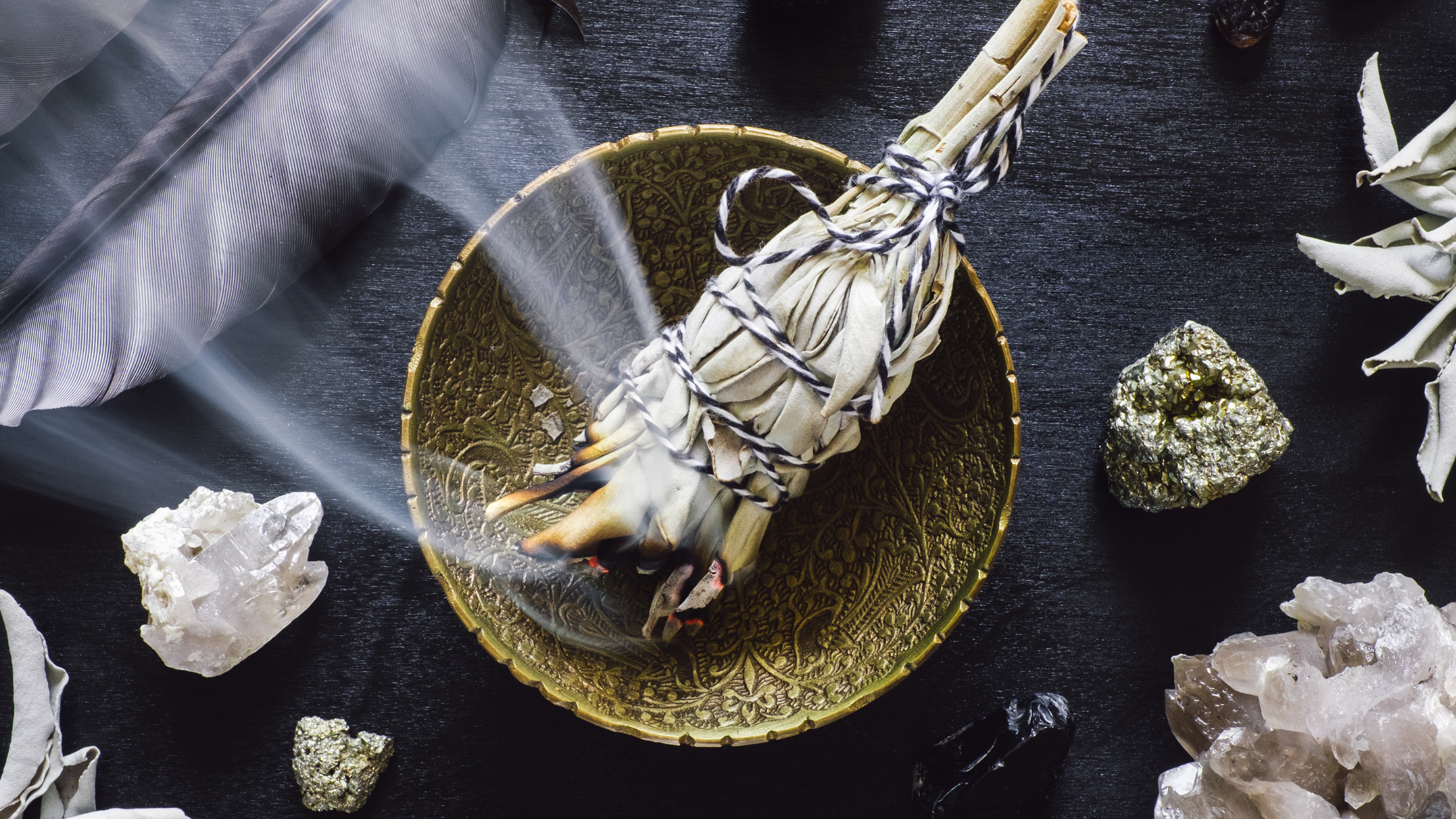After extensive research on the subject of traditional spiritual practices of Indigenous lineage, I came to a huge turning point in my wellness path. My eyes were opened to the vast amount of cultural appropriation taking place in today’s wellness industry. As the “trend” of holistic wellness and spirituality expands, Indigenous wellness practices are disregarded.
Many concepts of modern day spirituality root in Indigenous ancestral teachings. However, spiritual wellness is a very sacred concept that Natives hold extremely dear. The last thing they need is for society utilizing their spiritual practices for trends and profit.
Let’s Talk Cultural Appropriation
What is cultural appropriation and why does it apply to the Indigenous wellness culture? One of the most well-explained definitions we found is by Susan Scafidi, Fordham University Law Professor. Scafidi’s book Who Owns Culture? provides a detailed and well-explained answer to this question…so well-explained it was used by the National Conference for Community and Justice.
“Taking intellectual property, traditional knowledge, cultural expressions, or artifacts from someone else’s culture without permission. This can include unauthorized use of another culture’s dance, dress, music, language, folklore, cuisine, traditional medicine, religious symbols, etc. It’s most likely to be harmful when the source community is a minority group that has been oppressed or exploited in other ways or when the object of appropriation is particularly sensitive, e.g. sacred objects.”
Susan Scafidi
In the United States, cultural appropriation almost always involves members of the “dominant culture” and “minority groups”. People of the “dominant culture” being those who identify with “borrowing traditions and cultures from the minority groups”. “Borrowing” is a key component in cultural appropriation.

Believe it or not, it wasn’t until 1978 that the American Indian Religious Freedom Act (AIRFA) was passed allowing Native Americans the protection to freely practice their traditional religions. Prior to this act being passed, it was punishable by prison sentence for Native Americans to practice their religious ceremonies.
Modern integration of Indigenous spiritual practices have now become a “trend” many are hopping on. However, these practices are often utilized unconsciously.
“It hurts to see our traditions, which our ancestors died and fought for, now become a trend that others are demanding to be a part of,”
Chelsey Luger, Founder of Well for Culture
In Adrienne Kenne’s blog article from Native Appropriations, she says “The sale of Native spirituality is easily a million-dollar industry–not even including all the culture vultures and white shamans who sell fake ceremony. Who is benefitting from the sale of these products? Not Native peoples”. Before hopping on the bandwagon of a trend, do your own research on your heritage.
How to Avoid Cultural Appropriation
Showing sensitivity towards others’ backgrounds and emotions is one of the many ways to support the indigenous wellness culture. Here are some questions to ask yourself going forward when participating in something originating from another culture:
1.) Why are you utilizing this concept in your life? Do you feel called to? Is it out of genuine interest? Or is it something you think is trendy or appealing looking?
2.) What is the source of the concept or object you are buying? For things such as artwork or jewelry, was it made by someone from that culture? Was there permission given for the item to be sold?
The spread and sharing of ideas, philosophies, traditions, and material items is what helps to diversify our world. Showing genuine interest in other cultures and what they have to offer is not wrong. Knowledge of cultural appropriation sheds light on questions that should be addressed.
Some Resources That Support Indigenous Wellness Practices
Many organizations and businesses recognize the issue of cultural appropriation when it comes to Indigenous wellness and modern-day practices. Below are brands, organizations, and articles that support the background of these practices. While the “trend” of utilizing Indigenous spiritual practices is growing, its also important to cover both sides, good and bad. Many non-Natives are now attempting to utilize these practices out of genuine interest and pure intent.
WELL FOR CULTURE
Founded by Chelsey Luger and Thosh Collins, WELL FOR CULTURE aims to reclaim Indigenous health and wellness.
Learn more about WELL FOR CULTURE here.
Native Appropriations
Native Appropriations is a blog site by Adrienne Keene. On Keene’s blog, she talks about all things regarding the representations of Native people’s such as stereotypes, cultural appropriation, news, activism, and more.

Read Keene’s articles here.
Rachel Ricketts
Rachel Rickett is queer Black woman, global disruptor, speaker, healer and author of the forthcoming book Do Better: Spiritual Activism for Fighting and Healing from White Supremacy. She provides online and in-person workshops “which promote racial justice, reconciliation, and healing for all hue-mans, prioritizing the needs and comfort of Black and Indigenous women+ (including trans women, femmes, GNC, ENBY, two-spirit, intersex, agender, genderqueer and all gender identities oppressed by heteropatriarchy)”. Check out her Spiritual Activism course here.

Check out her articles here.
National Museum of the American Indian-Education Initiative
The National Museum of the American Indian provides an education initiative allowing transformative teaching and learning about Native Americans.

Learn more on the education initiative here.
Also join their online program on Indigenous People’s Day, Monday, October 12th, 2020, here.
Articles//
Nine Ways to Support the Rights of Indigenous People
IT’S TIME TO RETHINK THE ‘TREND’ OF BURNING SAGE ON INSTAGRAM
Similar Souls On Fire is committed to doing our part when it comes to finding out where the roots of wellness and wellness practices stem from. We implement a strict practice of inclusion in our articles so no one is left out and everyone is loved. We will be initiating a thorough comb through of our library, surfacing old and new content. This serves the purpose of revising and removing content if harmful or disrespectful. Similar Souls On Fire is a platform of love, peace, and advocates living a healthy + well life for the good of you.
